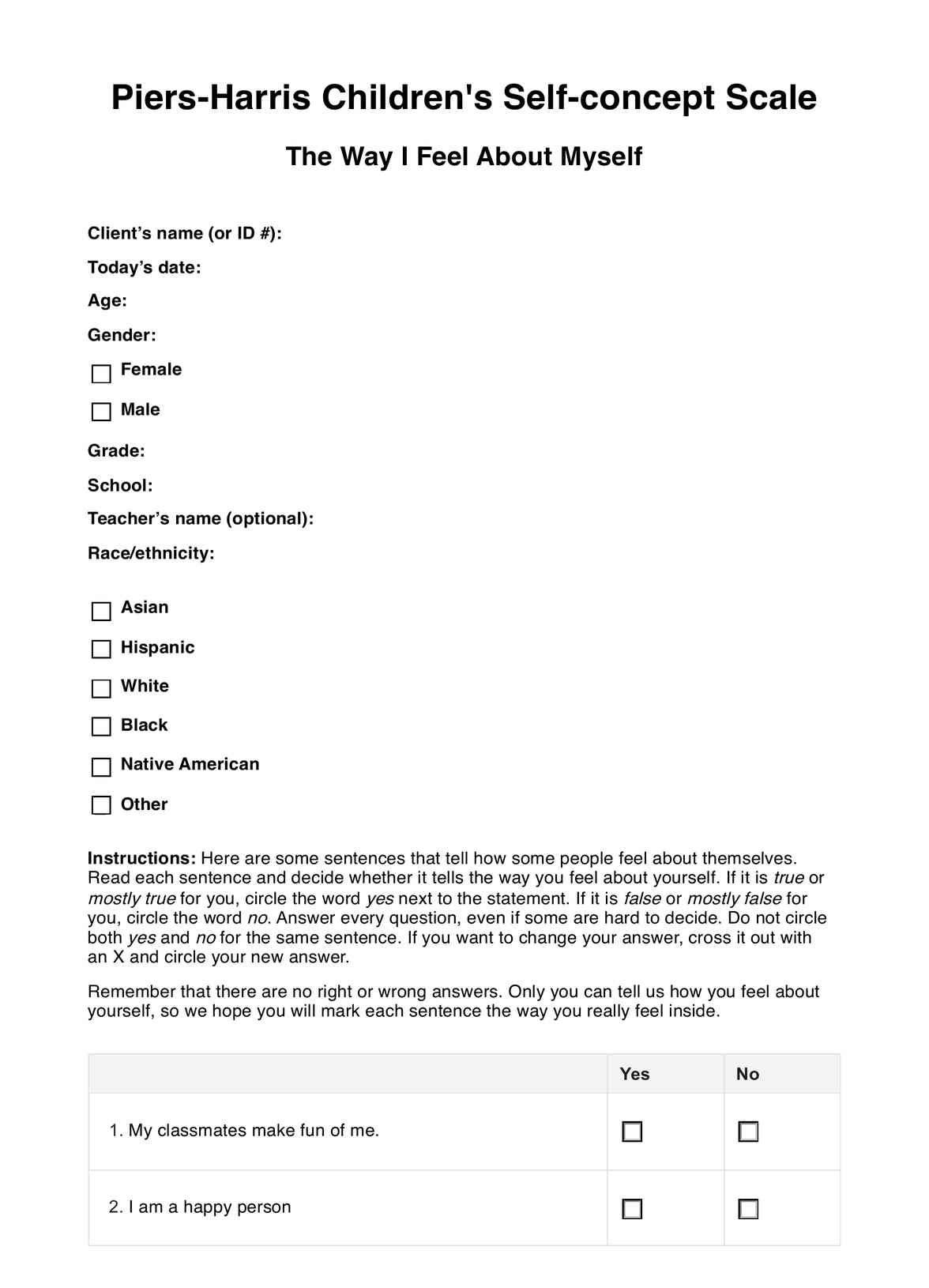It depends on the kid answering it. Some might take five minutes. Some way more than that, especially if they really think about their answers.

Piers-Harris Children’s Self-Concept Scale
Use the Piers-Harris Children’s Self-Concept Scale to gauge how children, adolescents, and teenagers perceive themselves.
Use Template
Piers-Harris Children’s Self-Concept Scale Template
Commonly asked questions
No. The only thing that kids need to do is to answer with a YES or NO for each item.
No. The one we showed earlier is for demonstrative purposes. If you want to use this scale, please purchase one from an official provider.
EHR and practice management software
Get started for free
*No credit card required
Free
$0/usd
Unlimited clients
Telehealth
1GB of storage
Client portal text
Automated billing and online payments











